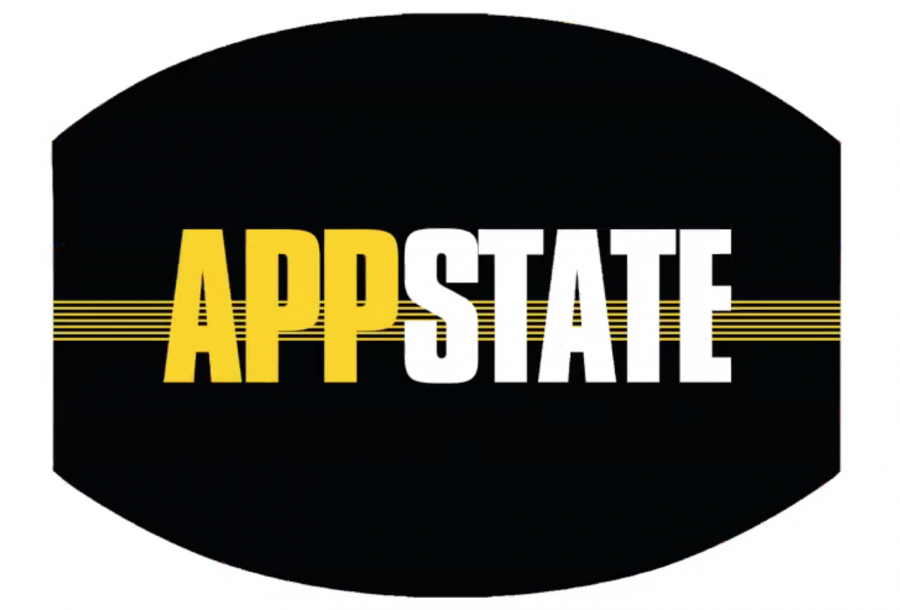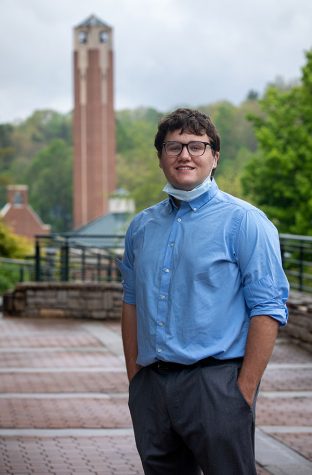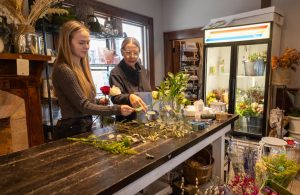As COVID-19 cases dwindle, App State looks to spring semester
December 3, 2020
As COVID-19 was spreading in China at the beginning of the year, App State and AppHealthCare started to talk. It wasn’t a pandemic-level event yet, but the two organizations knew they needed to prepare anyway, as a college campus was the perfect breeding ground for the contagious virus.
Over 300 days of planning later, App State has seen over 1,200 COVID-19 cases and one student death. At its peak in the beginning of October, App State had over 220 active cases among students.
“This is the biggest challenge this institution has ever faced hands down,” said Megan Hayes, App State’s chief communications officer. “No doubt about it.”
Halfway through the academic year, App State and AppHealthCare continue to learn and adapt to the COVID-19 pandemic.
“I have absolute confidence that we’re coming out of this stronger,” Hayes said.
AppHealthCare Director Jennifer Greene said the organization continues to meet with App State to provide public health guidance and recommendations to help inform planning for the spring semester.
Leading up to the spring semester, Greene said she encourages students to follow local, state and national guidelines related to COVID-19.
“This past fall, we saw a large spike in cases for Watauga County, many of which were App State students,” Greene said. “We want to avoid that happening this winter, because that’s also the time of year when we see an increase in flu and other respiratory viruses.”
Greene said together, the viruses can put more strain on the local health care system, so she encourages everyone to take the virus seriously, wear a mask, wait six feet apart and wash your hands.
“Until we have a vaccine available for the general public, these are the best actions we can take to protect our healthcare system capacity and lessen sickness and death in our community,” Greene said
Multiple pharmaceutical companies have requested emergency-use authorization for COVID-19 vaccines. Anthony Fauci, the country’s top infectious disease expert and a member of the White House COVID-19 task force, said in an interview with NPR the vaccine could start to be distributed to people in December. The first set of vaccines from Pfizer Inc. were shipped to the United States on Nov. 27.
Fauci said the first doses would most likely go to health care workers and people who are at higher risk.
The vaccine development is being closely watched by App State.
“We’re keeping a very, very close eye on vaccine development so that we can be ready when the time comes to help be a part of that distribution process,” Hayes said. “It’s a lot about logistics so when it comes, will you be ready? And how will you distribute it?”
App State will have mandatory testing for students living in residence halls to start the spring semester.
Hayes said details on mandatory testing are being finalized and will be given to students soon. The university expects a 73% to 75% residence hall occupancy for the spring semester, which is about 4,500 students with a capacity of about 6,100.
App State did not require testing for students at the start of the fall semester.
Targeted testing will also start to take place using wastewater. Hayes said the university is working with the office of research to test wastewater coming out of residence halls.
“That gives us information about how to identify areas for targeted testing,” Hayes said.
According to the Centers for Disease and Control, COVID-19 is detectable in wastewater several days before reported cases in a community. Conducting targeted wastewater surveillance includes sampling wastewater from upstream in a wastewater network, at places like lift stations, interceptors and manholes.
Other universities are also using the method to spot cases including the UNC Charlotte, University of Arizona, University of Virginia and Colorado State University.
Hayes also said students can expect to see more uses of the rapid antigen COVID-19 tests which give results in 15 minutes. Over the fall semester, App State has done over 25,000 total COVID-19 tests for students, faculty and staff.
Like the fall semester, App State will also provide free face masks. In the spring, the university will give out five face masks per person each with a different design. The university gave out three masks of the same design in the fall.
Hayes said distribution of the masks will be similar to this past semester.














